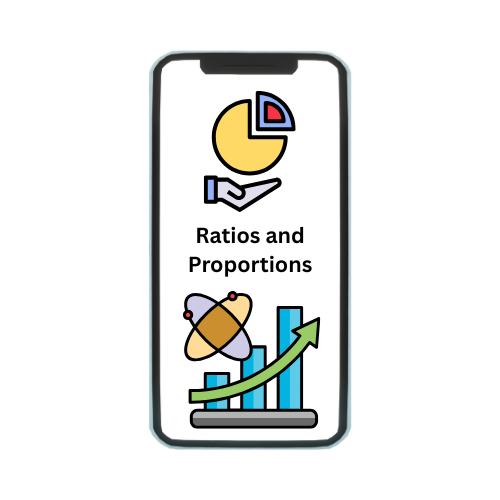In India taxation is divided in to two types Direct Tax and Indirect Tax. Taxes in India are levied by Central Government and State Government by virtue of powers conferred to them by Constitution of India. But do you know that all incomes are not taxable??? To know about such incomes where no tax is levied let us understand few concepts in detail.
What are Tax Free Income?
Tax Free Income is the income received that is not subject to income tax. These are tax exempted. Income may also be any property or services you receive apart from money. The tax free status of these goods, investments, and income may incentivize individuals and business entities to increase spending or investing. Every person with taxable income in India expects his tax to be saved. The following are the list of incomes that are tax free in India.
Money Received From Insurance
Any amount which a policy holder or a nominee gets from the insurance company is tax free in India. These amount includes bonus amount too. This applies to certain insurance and its provisions defined under Section 10(10D). However, exemption would not be available if the premium payable for any of the years during the term of the policy exceeds 15% of “actual capital sum assured” i.e., “minimum capital sum assured” under the policy on the happening of the insured event at any time during the term of the policy. Under section 80C premium paid to the extent of 15% of “actual capital sum assured” is exempt from tax. This is with respect to policies issued on or after 01.04.2013.
Agriculture Income
Agriculture income is completely free from Income tax under section 10(1) of the Income Tax Act. Agriculture Income refers to:
- The production, processing, and distribution of agricultural products like wheat, rice, pulses, fruits, vegetables, spices, etc.
- Rent received from properties used for agriculture.
- The income generated by the sale or buying of agricultural land
Components of Salary received from the employer
Salary is one of the primary motivating factors for any employee. It is the remuneration the employee receives for their work. Employees expect the company to pay the amount mutually agreed upon when they start working for the company. Components in Salary that are fully non-taxable or tax exempt are as follows:
Medical Insurance Premium
If the premium for medical insurance for the employee or his family members is borne by the company it is treated as tax free perquisite in the hands of the employee.
Phone and Internet Bills
Reimbursement of telephone and internet bills is tax exempt. But there is no set limit and it is set at the company’s discretion. Employees need to provide bills to claim the tax benefit.
Meal Coupons
Meal coupons like Sodexo are a popular tax saving perquisite offered by most employers in Indian Payroll Processing. These are tax-exempt, for a limit set at Rs.50 per meal. Assuming 22 working days and two meals per day during office hours, an amount of Rs.2200 per month is tax-free in the hands of the employee.
Books, Periodicals, Newspapers and Journals
Books, Journals and Periodicals which employees use to further their skills are also a tax free perk that can be offered by the employer. But the actual bills should be submitted. Here also the limit is set as per employer’s discretion.
Gadgets
Tablets, Laptops, computers provided by the company are considered as tax free perks.
Recreational and Medical Facilities’
If the company provides Medical facilities such as doctor checkups then they are tax free. Similarly memberships to sports or health clubs or facilities provided by workplace are also fully exempt from income tax.
Gifts in Kind
Gifts in Kind up to maximum Rs 5000 per year are not taxable in the hands of the employee.
Receipts from Hindu Undivided Family
An individual who is member of a Hindu Undivided Family is not required to pay income tax on any receipts they receive. The HUF however has a separate income tax assessment and payment.
Share from Partnership Firm or LLP
If an individual is a partner of a firm, the profit shares the person owns in the total firm, income is exempted from the income tax, under section 10(2). Other sources of income of the partner or LLP or partnership firm receives including interest or remuneration are taxable.
Gratuity
Gratuity is a benefit given by the employer to employees. Recently the Central government increased the maximum limit of gratuity. Now it is tax exempt up to Rs 20 lakhs from the previous ceiling of Rs 10 lakhs, which comes under Section 10(10) of the Income Tax Act. The exemption limit of Rs 20 lakh would be applicable to employees in the event of retirement or death or resignation or disablement on or after 29 March 2018.
- Retirement gratuity received under the Pension Code or Regulations applicable to members of the Defence Service is fully exempt from
- Employees of Central Government/ Members of Civil Services/ local authority employees: Any death cum retirement gratuity is fully exempt from tax under section 10(10) (i).
- Other employees:
Covered by the Payment of Gratuity Act, 1972
Any death-cum-retirement gratuity is exempt from tax to the extent of least of the following:
- 20,00,000
- Gratuity actually received
- 15 days’ salary based on last drawn salary for each completed year of service or part thereof in excess of 6 months
Note: Salary for this purpose means basic salary and dearness allowance. No. of days in a month for this purpose, shall be taken as 26.
Not covered by the Payment of Gratuity Act, 1972
Any death cum retirement gratuity received by an employee on his retirement or his becoming incapacitated prior to such retirement or on his termination or any gratuity received by his widow, children or dependents on his death is exempt from tax to the extent of least of the following:
- 20,00,000
- Gratuity actually received
- Half month’s salary (based on last 10 months’ average salary immediately preceding the month of retirement or death) for each completed year of service.
Earnings from Public Provident Fund
PPF is one of the investment options under the EEE Category, so the investment amount interest and maturity amount are tax free. In Section 10 of Income Tax Act, the interest income you get from the PPF is exempt from Income Tax. Any amount you get from the maturity of PPF is also tax-free, provided the contributions were made for 5 consecutive years.
Gifts from Friends and Family
For gifts no tax needs to be paid, including property, vehicles and Jewellery. However if you get these gifts from someone other than relative, the exemption limit is Rs 50000/- There is an exception to this rule when you get a gift for marriage, it becomes fully tax free, regardless of whether it is from a relative or friend.
Income from Awards or Scholarships
As per Section 10(17A) when the government, be it state or central, awards a monetary payment to you, you do not need to pay tax on it. This includes cash prize received along with state honours like the Bharat Ratna. If a person is awarded a scholarship for education from the government or even through non-government institutes, it is tax free.
Returns received from share or Equity MF
If you have invested in shares or equity mutual funds, then returns of Rs 1 lakh on selling them are tax free, This return is calculated under Long Term Capital Gain (LTCG). However returns above this amount attract LTCG tax.






